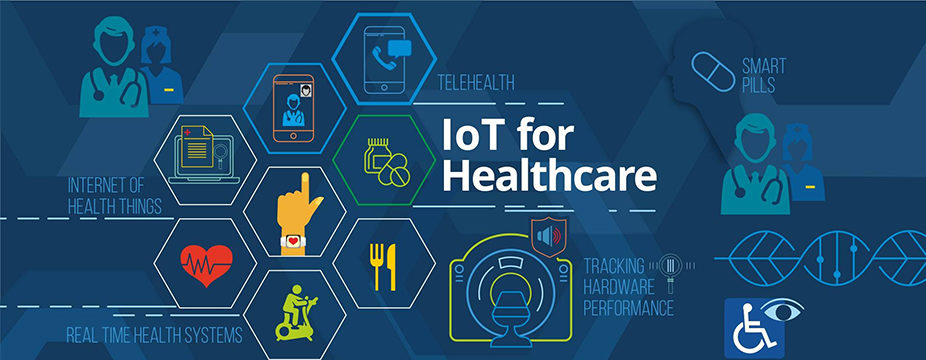|
Getting your Trinity Audio player ready...
|
IoT in Healthcare is facilitating machine-to-machine connectivity and opening up new possibilities in businesses and personal lives. One of the early adopters of technology in the healthcare industry and it is not untouched by the Internet of Things.
Sensors, wearable devices, healthcare monitoring systems, and mobile apps, etc., are transforming the healthcare industry. IoT facilitates data collection through multiple sources and real-time transmission of the data to facilitate several innovative usages in hospitals.
Many healthcare organizations are leaning towards IoT for their ability to solve complex healthcare challenges like improving treatment outcomes, optimizing resource utilization, and boosting the patient experience. The Internet of Things is capable of addressing these challenges through continuous tracking, monitoring, and regular information flow to various stakeholders. This results in timely treatment, better treatment accuracy, and patient care.
What are the Applications of IoT in Healthcare
- Building connected ecosystems – IoT is helping healthcare organizations build connected ecosystems integrating various processes and departments of a hospital into one unit. This helps hospitals automate and streamline processes as well as optimize resource utilization and cut costs.
- Emergency care – IoT has improved the quality of providing emergency care services tremendously. In case of an emergency, the patients can directly contact the doctors, through mobile healthcare apps or remote monitoring devices, and the medics will tend to the patients by giving them the preliminary treatment on the go to the hospital and thereby saving their lives.
- Asset Management – IoT-connected healthcare devices provide healthcare professionals with the latest and real-time data about patients instantly. Wearable devices, like Fitbit, can be worn on the body to get data about the calories burnt, heartbeat rate, etc., whereas devices like remote patient monitoring (RPM) transfer the patient’s data to the doctors and nurses remotely. Similarly, IoT can connect devices in hospitals.
- Providing reliable data for research – Much of the information provided for research purposes is usually outdated and unreliable. IoT helps in providing real-time superior information by using devices that are capable of performing research. The research performed with valuable and reliable inputs is capable of churning out better solutions.
The role of IoT in Healthcare
Healthcare organizations can benefit from IoT in many ways. Some of the popular benefits of IoT in healthcare are-
1. Reduced waiting time – Along with high medical expenses, waiting time for patients in the emergency rooms can turn out to be tedious and dull. IoT can track vacant rooms for inbound patients and reduce the waiting time by 50 percent.
2. Monitoring and reporting – Patients’ medical data can be monitored and reported simultaneously. Connected devices gather the medical data and transfer it to the medical professionals in case of remote monitoring of the patients. This is specifically beneficial to preventing emergency situations like heart attacks, asthma, etc. According to a study conducted by the Center of Connected Health Policy, there was a 50 percent reduction in the 30-day re-admission rate because of remote patient monitoring of heart failure patients.
3. Tracking of assets – Along with patients, tracking of staff and inventory is made easy by IoT and its location systems. Big healthcare organizations are turning to IoT-based location systems as they prove to be a less expensive way of monitoring day-to-day activities and tracking their doctors and nurses, their inventory, and even tracks the whereabouts of their patients (for example automatic/smart wheelchairs) in case of emergencies.
4. Timely administration of drugs – Drugs that are given to a patient can be monitored through IoT devices. These devices will prompt the patient and the concerned staff when a particular drug has to be administered along with its dosage. The devices can also track the effects of medicines on patients. The patient and the staff will be sent an alert if there is an overdose or underdose of any drug.
5. Timely alerts on the performance of equipment – The performance of high-end, latest technology equipment that is installed and used in hospitals can be tracked with connected devices. When equipment is not procuring data or not giving the desired result or is about to break down, alerts about the same can be sent via the other connected devices to the concerned personnel. This will allow them to take the necessary steps in time.
IoT in healthcare will definitely make complex challenges easier and the seamless connection of devices will improve the overall patient experience.
If you need any help with idea validation, proof-of-concept, Data Science consulting, large-scale AI implementation, Big Data Engineering, or a creative solution for your Healthcare application. You are at the right place.
Talk to our experts
